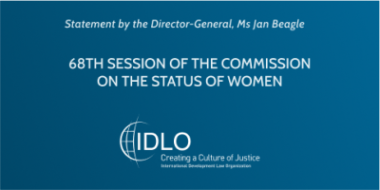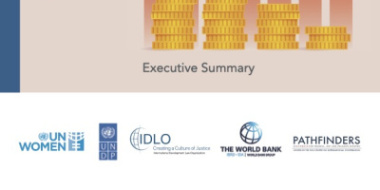Reducing the Impact of Insecurity on Afghanistan’s Legal System
For over 15 years, IDLO has been assisting the Government of the Islamic Republic of Afghanistan develop accessible, accountable, effective and efficient justice sector institutions. While significant progress has been made, many challenges remain, frequently perceived to be rooted in the ongoing conflict, the impact of insecurity and the public’s fear for their safety. There is a strong need to address the concerns and goals of the justice sector and find innovative solutions and methods to strengthen its resilience.












